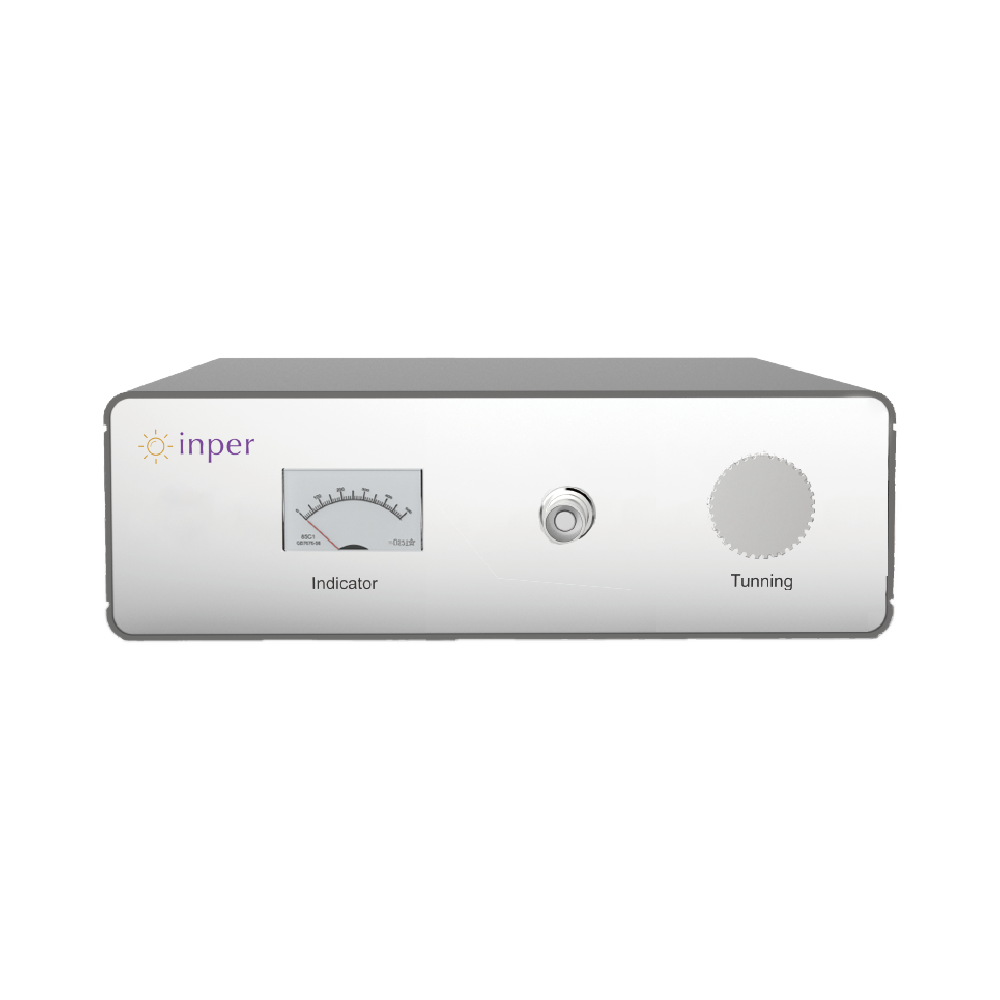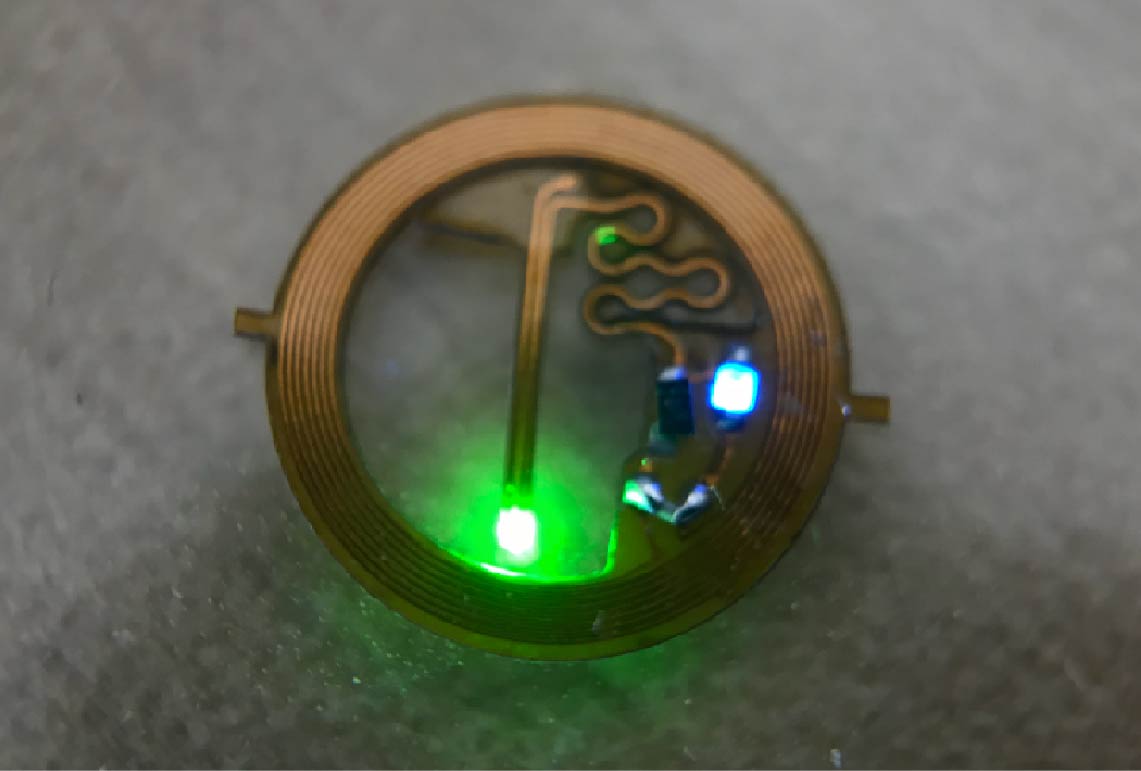
超微型无线光遗传系统
Optogenetics has become an important research tool in neuroscience for its high temporal and spatialresolution and cell specificity. The traditional optogenetic solution is to transmit specific wavelength of light to the target nuclei through optical fibers. This wired connection interfere with the behavioral results of experimental animals more or less, limiting the regulation of light stimulation in some behavioral paradigms. However, as the optogentics goes deeper and broader in research fields, such as peripheral nerves, heart, skin, urinary system, etc., traditional solutions by fiber implantation become increasingly difficult to meet the actual experimental demands. Therefore, miniaturization, wireless, and flexible optogenetic solutions are almost certain.

The ultra-miniature wireless optogenetics system developed by inper contains three modules: controller, energy generator and flexible implant. The system guarantees stable optical power output without battery. It integrates inper studio of windows or iOS version, which is convenient to operate and rich in functions.
Specifications
| Light Type | Full implantable LED chip |
| Power | Wireless power supply |
| Surface treatment | Waterproofing design Histocompatibility Flexible design |
| Wavelength | 390, 470, 530, 560, 590, 650 |
| Input | Connector: BNC Number of Channels: 2 Voltage Range: 0.1-10 V |
| Output | Connector: BNC Number of Channels: 2 Voltage Range: 0.1-5 V |
| Software | Platform: Windows and iOS |
| Connection Type | Wifi or USB |
| Stimulation Parameter | Square: 0.1ms-100h Pulse Train: 0.1 ms-100 h; 1-10KHz |
| Stimulation Delay | 0.1 ms-100 h |
| Trigger | Mode: Gate, Edge, Real Time Refractory Period: 1 ms - 1 h Signal Range: 0.1 - 10 V |
Optogenetics has become an important research tool in neuroscience for its high temporal and spatialresolution and cell specificity. The traditional optogenetic solution is to transmit specific wavelength of light to the target nuclei through optical fibers. This wired connection interfere with the behavioral results of experimental animals more or less, limiting the regulation of light stimulation in some behavioral paradigms. However, as the optogentics goes deeper and broader in research fields, such as peripheral nerves, heart, skin, urinary system, etc., traditional solutions by fiber implantation become increasingly difficult to meet the actual experimental demands. Therefore, miniaturization, wireless, and flexible optogenetic solutions are almost certain.

The ultra-miniature wireless optogenetics system developed by inper contains three modules: controller, energy generator and flexible implant. The system guarantees stable optical power output without battery. It integrates inper studio of windows or iOS version, which is convenient to operate and rich in functions.
Specifications
| Light Type | Full implantable LED chip |
| Power | Wireless power supply |
| Surface treatment | Waterproofing design Histocompatibility Flexible design |
| Wavelength | 390, 470, 530, 560, 590, 650 |
| Input | Connector: BNC Number of Channels: 2 Voltage Range: 0.1-10 V |
| Output | Connector: BNC Number of Channels: 2 Voltage Range: 0.1-5 V |
| Software | Platform: Windows and iOS |
| Connection Type | Wifi or USB |
| Stimulation Parameter | Square: 0.1ms-100h Pulse Train: 0.1 ms-100 h; 1-10KHz |
| Stimulation Delay | 0.1 ms-100 h |
| Trigger | Mode: Gate, Edge, Real Time Refractory Period: 1 ms - 1 h Signal Range: 0.1 - 10 V |


















